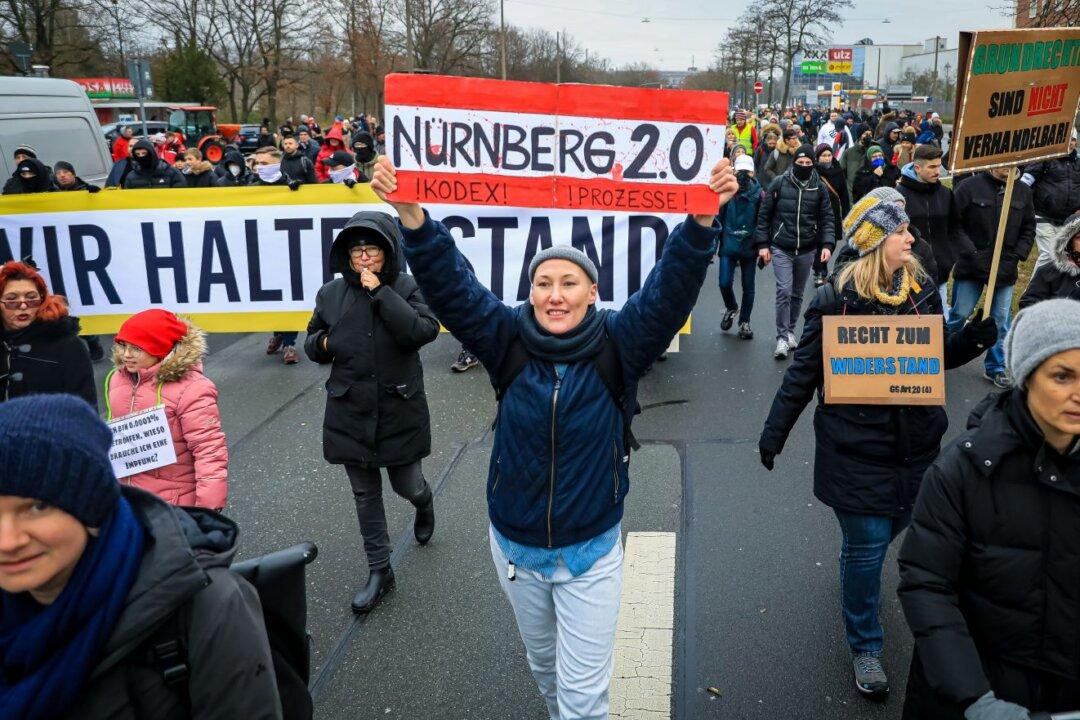Thousands of people took to the streets of Germany on Monday in protest over COVID-19 restrictions that go into effect on Tuesday.
The demonstrations were particularly rife in Mecklenburg-Western Pomerania, northern Germany, where roughly 15,000 demonstrators took to the streets across several cities to protest against tighter measures, according to local reports.




